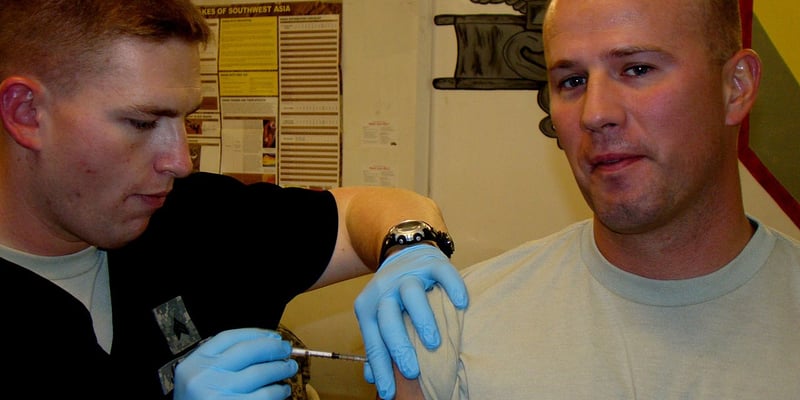There are many vaccine facts and myths, but the truth is getting shots for common illnesses and diseases literally saves lives.
The UMHS Endeavour debunks three common misconceptions about vaccines for the general public and students at American and Caribbean medical schools.
Myth: HPV Vaccine is for Girls Only
Fact: Both boys and girls will benefit from HPV vaccine. HPV (Human Papillomavirus) affects both genders.
The Centers for Disease Control and Prevention (CDC) says on its website, “A lot of parents know that HPV vaccine protects girls against cervical cancer. But did you know that vaccinating boys can protect them against cancer, too? HPV can cause anal cancer and mouth/throat (oropharyngeal cancer), and cancer of the penis in men. Every year, there are over 9,300 HPV-related cancers in men. Many of these cancers could be prevented by HPV vaccine.”
The CDC continues, “One HPV vaccine—Gardasil—is recommended by doctors and health experts for boys at age 11-12 years old. The vaccine can also help prevent genital warts. HPV vaccination of boys is also likely to benefit girls by reducing the spread of HPV viruses.”
For more information, visit the CDC’s website at http://www.cdc.gov/features/hpvvaccineboys/
Myth: Vaccines cause autism
Fact: The 1998 study by Andrew Wakefield that claimed a link “between the measles, mumps, and rubella (MMR) vaccine and autism” has been proven false. Health.com says in 1994, the Institute of Medicine reported there was no scientific evidence proving the link, and the CDC released a similar report back in 2010.
“It's more risky for your child to not be vaccinated," Carrie Nelson, MD, chair of the Commission on Health of the Public and Science for the American Academy of Family Physicians, told Health.com.
Myth: Getting too many vaccinations can weaken the immune system
Fact: Getting several vaccinations at once actually protects people, particularly children.
Health.com says, “Children are given multiple vaccinations at a time to provide as much protection as early as possible. Both the Advisory Committee on Immunization Practices and the American Academy of Pediatrics recommend that vaccinations be given to children simultaneously when appropriate.”
For more information, visit http://www.health.com/health/gallery/0,,20476515_11,00.html
(Top photo) GET YOUR SHOT: Vaccines help prevent many illnesses & diseases. Pictured: A U.S. military doctor gives a shot to patient. Photo: Staff Sgt. James E. Brown/Wikimedia Commons
About UMHS:
Built in the tradition of the best US universities, the University of Medicine and Health Sciencesfocuses on individual student attention, maintaining small class sizes and recruiting high-quality faculty. We call this unique approach, “personalized medical education,” and it’s what has led to our unprecedented 96% student retention rate, and outstanding residency placements across the US and Canada. UMHS is challenging everything you thought you knew about Caribbean medical schools.

Scott is Director of Digital Content & Alumni Communications Liaison at UMHS and editor of the UMHS Endeavour blog. When he's not writing about UMHS students, faculty, events, public health, alumni and UMHS research, he writes and edits Broadway theater reviews for a website he publishes in New York City, StageZine.com.
















